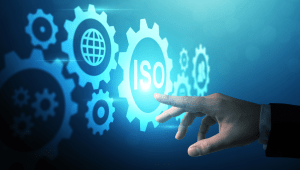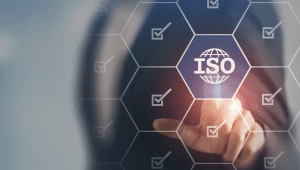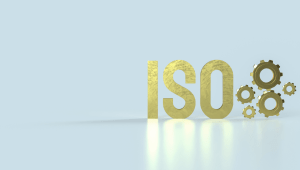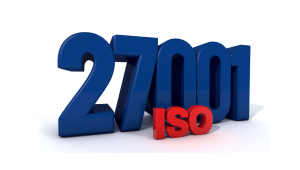Understanding ISO/IEC 27001: A Strategic Approach to Information Security
ISO/IEC 27001 is a globally acknowledged standard for information security management, jointly developed by the International Organization for Standardization (ISO) and the International Electrotechnical Commission (IEC). This framework has undergone several updates over time, with the most current version being ISO/IEC 27001:2022.
At its core, ISO 27001 outlines the requirements for building and continuously refining an Information Security Management System (ISMS). It provides a flexible structure made up of 93 controls that guide organizations in evaluating and managing their information security risks. Rather than mandating all controls, ISO 27001 encourages businesses to assess their specific threat landscape and implement only those controls that effectively mitigate their identified risks.
ISO 27001’s Role in Strengthening Data Security
An ISO 27001-compliant ISMS encompasses all aspects of securing data—addressing people, processes, and technology. This structured approach helps organizations protect sensitive assets such as proprietary information, operational data, and personal records. By adopting these security protocols, companies can reduce the likelihood of cyber incidents, such as data leaks, ransomware, or internal breaches, while aligning with privacy regulations like the General Data Protection Regulation (GDPR).
A well-maintained ISMS ensures data confidentiality, integrity, and availability—core principles that also support compliance with broader regulatory frameworks.

Supporting ISO 27001 Compliance with Liberation Technology
Liberation Technology offers robust security solutions designed to address a wide range of digital threats, including ransomware, data theft, DDoS attacks, and system intrusions. Their globally distributed security platform embeds protection at every level, helping organizations proactively detect and mitigate evolving threats.
By integrating Zero Trust architecture into its offerings, Liberation Technology enables businesses to meet ISO 27001 requirements through detailed asset monitoring, granular access control, and strong policy enforcement. This alignment not only facilitates compliance but also drives continual security improvements.

ISO 27001 in Action Across Industries
ISO 27001’s versatile framework makes it applicable across various sectors. Here’s how different industries are leveraging it:
Critical Infrastructure
Essential services like utilities, transport, and chemical production are frequent targets for cybercriminals due to their impact on national security and public safety. A single vulnerability—like a compromised login—can lead to massive disruptions, as seen in incidents like the Colonial Pipeline ransomware attack. Adopting ISO 27001 helps these sectors implement proactive controls to guard against unauthorized access and secure their extended supply chains.
Healthcare
With its reliance on digital systems and sensitive patient data, healthcare is particularly vulnerable to cyber threats. The FBI’s IC3 reported that healthcare faced more ransomware incidents in 2022 than any other critical sector. By adopting ISO 27001 and a Zero Trust framework, healthcare organizations can better safeguard data privacy and protect their complex service environments from breaches and operational disruptions.
Financial Services
Financial institutions face a wide array of cyberattacks, including phishing, credential theft, and system intrusions. A 2023 IMF report revealed a surge in cyber threats targeting the finance sector, urging stronger defenses. ISO supports the implementation of access restrictions, network segmentation, and rigorous authentication processes—essential steps in defending sensitive financial systems.

The Business Value of ISO Certification
Beyond improving data security, achieving ISO 27001 certification signals to customers, partners, and regulators that your organization prioritizes information protection and operational resilience. It demonstrates that a comprehensive risk assessment has been performed and that measures are in place to manage and respond to security incidents.
Moreover, ISO 27001 provides a strong foundation for complying with other security standards and privacy regulations such as GDPR and the NIST Cybersecurity Framework. Certification can reduce the risk of regulatory penalties, lower the chances of data breaches, and enhance your company’s reputation and competitive edge.
By adopting ISO, organizations not only bolster their security posture but also build trust, demonstrate accountability, and position themselves for sustainable growth in an increasingly digital world.

